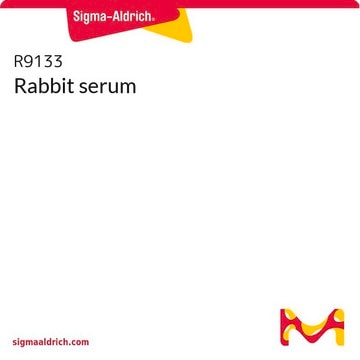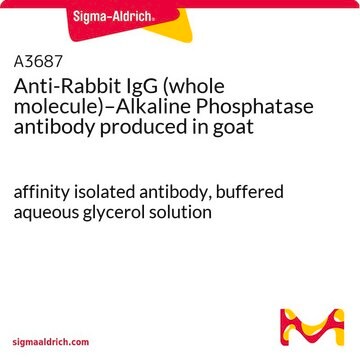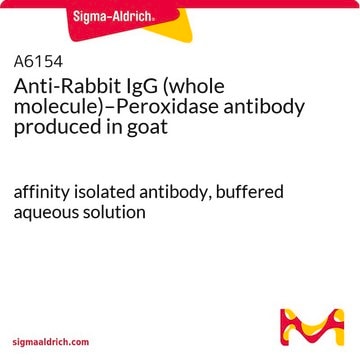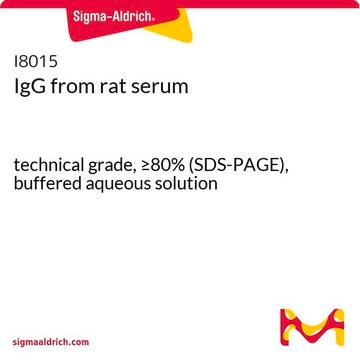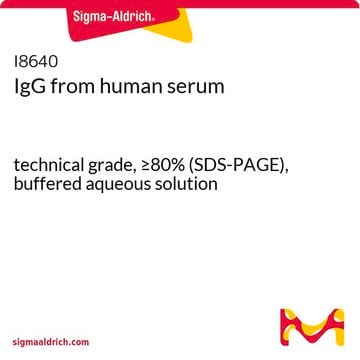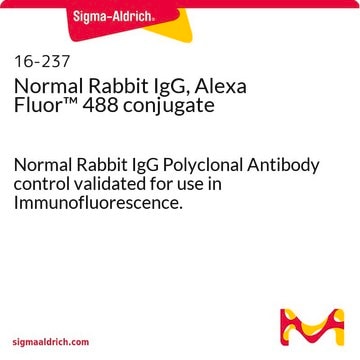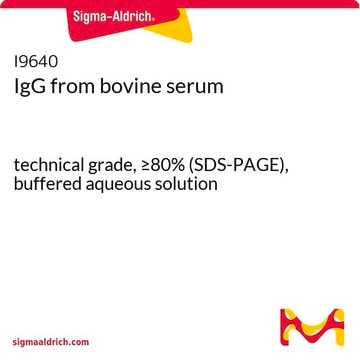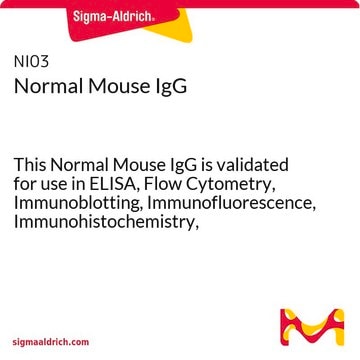I8140
IgG from rabbit serum
technical grade, ≥80% (SDS-PAGE), buffered aqueous solution
Synonyme(s) :
Rabbit IgG
About This Item
Produits recommandés
Conjugué
unconjugated
Niveau de qualité
Qualité
technical grade
Pureté
≥80% (SDS-PAGE)
Forme
buffered aqueous solution
Conditions d'expédition
dry ice
Température de stockage
−20°C
Vous recherchez des produits similaires ? Visite Guide de comparaison des produits
Application
- as a reference, standard or blocking agent in many immunoassays including dot blots, ELISA, Westerns, IEP, and immunodiffusion assays
- in arthus reaction
- in chromatin immunoprecipitation
Actions biochimiques/physiologiques
Forme physique
Notes préparatoires
Remarque sur l'analyse
Clause de non-responsabilité
Code de la classe de stockage
12 - Non Combustible Liquids
Classe de danger pour l'eau (WGK)
WGK 2
Point d'éclair (°F)
Not applicable
Point d'éclair (°C)
Not applicable
Certificats d'analyse (COA)
Recherchez un Certificats d'analyse (COA) en saisissant le numéro de lot du produit. Les numéros de lot figurent sur l'étiquette du produit après les mots "Lot" ou "Batch".
Déjà en possession de ce produit ?
Retrouvez la documentation relative aux produits que vous avez récemment achetés dans la Bibliothèque de documents.
Les clients ont également consulté
Notre équipe de scientifiques dispose d'une expérience dans tous les secteurs de la recherche, notamment en sciences de la vie, science des matériaux, synthèse chimique, chromatographie, analyse et dans de nombreux autres domaines..
Contacter notre Service technique


